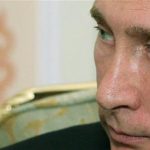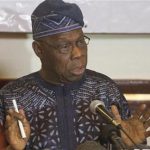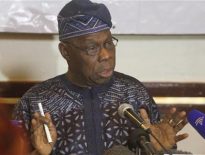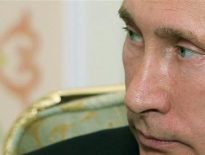TEHRAN, Iran (AP) — Iran’s president-elect called Israel’s control of Jerusalem and Palestinian lands a “wound” for the Islamic world in relatively moderate remarks Friday that contrasted with the harsh rhetoric of his predecessor and other Iranian leaders.
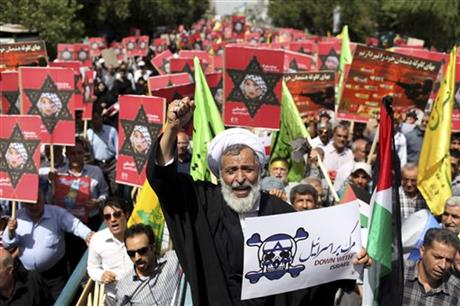
Speaking to reporters during an annual pro-Palestinian rally, Hasan Rouhani said: “In our region and under occupation of Palestine and dear Jerusalem, there has been a wound on the body of the Islamic world.”
The comments, two days before Rouhani’s inauguration, were tame compared with those frequently made by outgoing President Mahmoud Ahmadinejad calling for Israel’s destruction. The country’s supreme leader, Ayatollah Ali Khamenei, once called the Jewish state a “cancer” that needed to be cut away.
A semiofficial Iranian news agency initially quoted Rouhani as calling Israel a “wound that should be removed.” That prompted Israeli Prime Minister Benjamin Netanyahu to retort that “the real face of Rouhani has been exposed earlier than expected.”
But the news agency, ISNA, later said it was a misquote, confirmed by state TV footage of Rouhani’s comment reviewed by The Associated Press. Netanyahu issued no statement on the corrected version.
Nevertheless, the mishap underscored the challenges facing the incoming president, who was elected in June with pledges to seek a calmer and more balanced outreach to the West.
It is Khamenei and the Revolutionary Guard who control Iranian policies, and the supreme leader has final say in all key matters.
Rouhani will effectively be the international face of Iran and has made no secret of his desire to project a new image of dialogue rather than diatribes. It remains to be seen to what extent he will be able to persuade the ruling clerics and military that interaction with Washington and its allies over Iran’s nuclear program could bring dividends such as easing painful sanctions.
Israel has not ruled out a military option against Iran’s nuclear facilities, which the West suspects are geared toward making a nuclear weapon. Tehran denies the charge and insists its nuclear program is meant for peaceful purposes only.
The Iranian leadership has long maintained harsh views on Israel, backing anti-Israeli factions such as Lebanon’s Hezbollah militant group. But it now appears to recognize that Ahmadinejad’s fiery denunciations of Israel and his questioning the extent of the Holocaust needlessly outraged the West and did not advance Iran’s national interests.
Rouhani appears to be trying to maneuver in the tight space allotted in Iran’s power structure. He is making clear that he stands with Iran’s uncompromising positions on Israel but is also backing away from Ahmadinejad’s fist-waving approach.
In his remarks Friday, Rouhani also expressed doubts about the possibility of an Israeli-Palestinian peace deal as the two sides resumed negotiations in Washington this week following a five-year freeze in Mideast talks.
“Israelis show a compromising face to the world but continue their expansionism in practice,” Rouhani said, according to Fars, another semiofficial news agency. “This rally is a reminder that Muslim people will not forget their historical right and they will resist oppression and invasion.”
Iran does not recognize Israel and has since the 1979 Islamic Revolution observed the last Friday of the Islamic month of Ramadan as “Al-Quds Day.” Tehran says the occasion is meant to express support for Palestinians and emphasize the importance of Jerusalem for Muslims.
Jerusalem’s eastern sector houses sensitive Jewish, Christian and Muslim shrines and is sacred to all three religions. Jerusalem is the holiest place in Judaism and the third holiest city in Islam, after the Saudi Arabian cities of Mecca and Medina.
Anti-Israeli rallies were held in cities and towns across Iran on Friday. In the capital, Tehran, tens of thousands took to the streets, chanting “Down with America” and “Death to Israel.” Some protesters also burned American and Israeli flags.
Ahmadinejad spoke to the crowds after the rally in Friday prayers at the Tehran University campus. It was his last public speech before his term ends.
“You Zionists planted a wind but you will harvest a storm,” the outgoing president said. “A destructive storm is on the way and it will destroy Zionism.”


